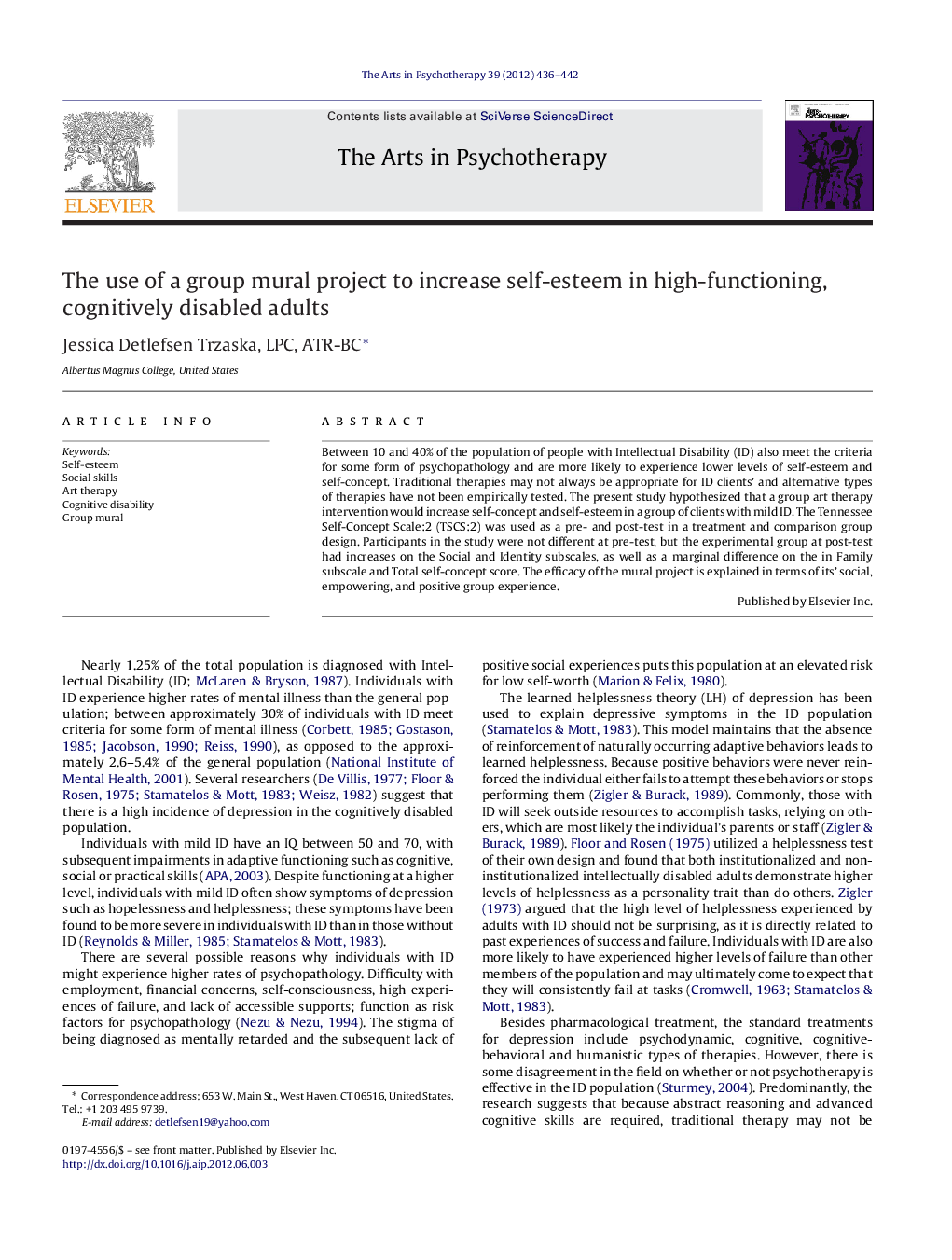| Article ID | Journal | Published Year | Pages | File Type |
|---|---|---|---|---|
| 343733 | The Arts in Psychotherapy | 2012 | 7 Pages |
Between 10 and 40% of the population of people with Intellectual Disability (ID) also meet the criteria for some form of psychopathology and are more likely to experience lower levels of self-esteem and self-concept. Traditional therapies may not always be appropriate for ID clients’ and alternative types of therapies have not been empirically tested. The present study hypothesized that a group art therapy intervention would increase self-concept and self-esteem in a group of clients with mild ID. The Tennessee Self-Concept Scale:2 (TSCS:2) was used as a pre- and post-test in a treatment and comparison group design. Participants in the study were not different at pre-test, but the experimental group at post-test had increases on the Social and Identity subscales, as well as a marginal difference on the in Family subscale and Total self-concept score. The efficacy of the mural project is explained in terms of its’ social, empowering, and positive group experience.
